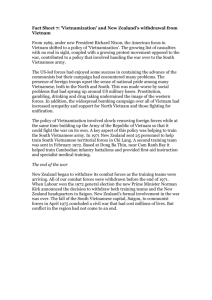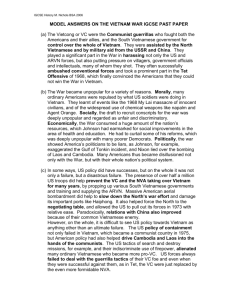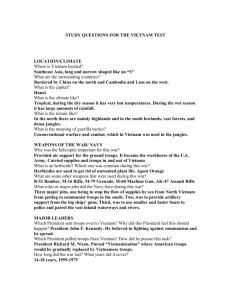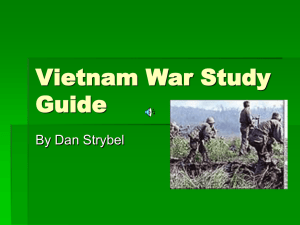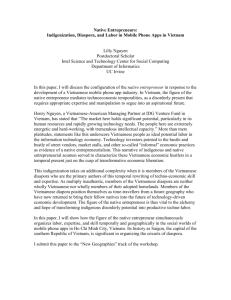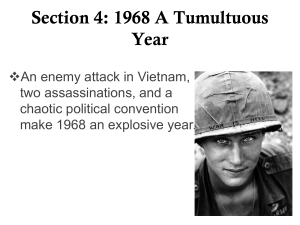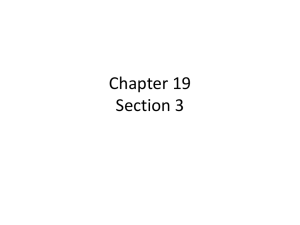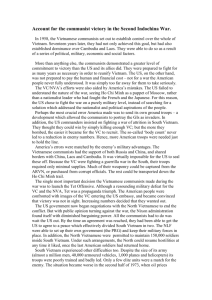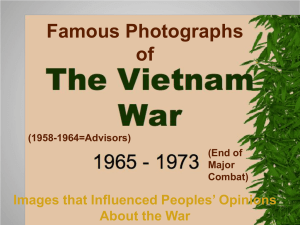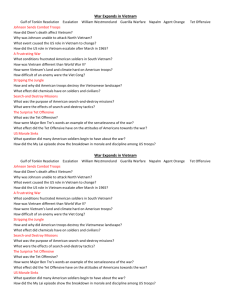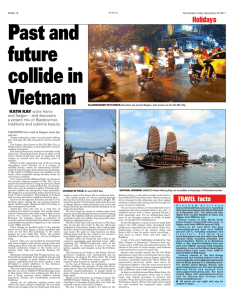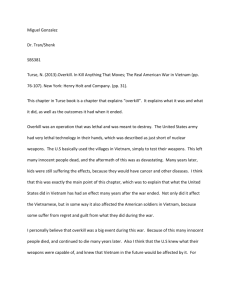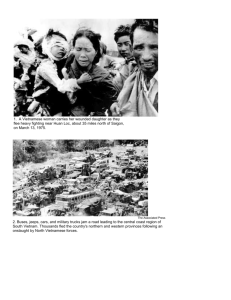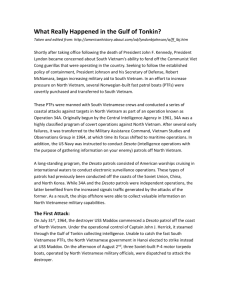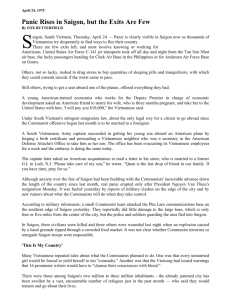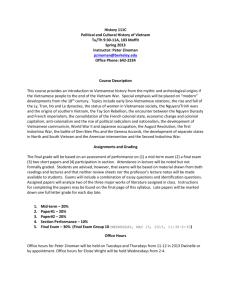File - Kirk Kirkland ePortfolio
advertisement
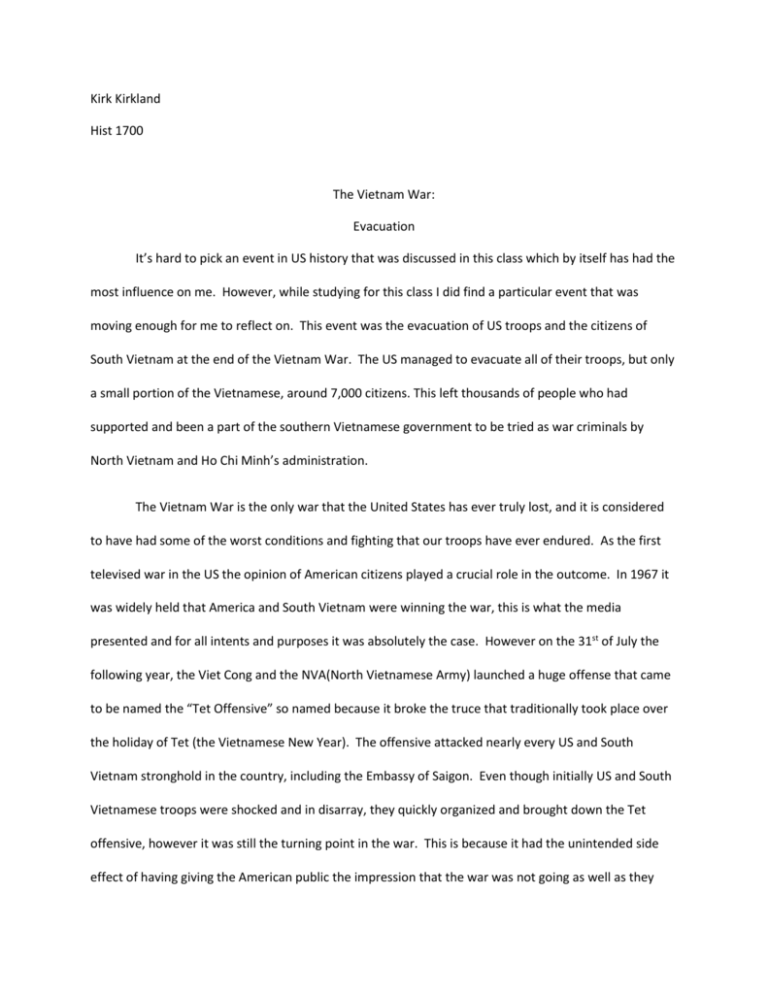
Kirk Kirkland Hist 1700 The Vietnam War: Evacuation It’s hard to pick an event in US history that was discussed in this class which by itself has had the most influence on me. However, while studying for this class I did find a particular event that was moving enough for me to reflect on. This event was the evacuation of US troops and the citizens of South Vietnam at the end of the Vietnam War. The US managed to evacuate all of their troops, but only a small portion of the Vietnamese, around 7,000 citizens. This left thousands of people who had supported and been a part of the southern Vietnamese government to be tried as war criminals by North Vietnam and Ho Chi Minh’s administration. The Vietnam War is the only war that the United States has ever truly lost, and it is considered to have had some of the worst conditions and fighting that our troops have ever endured. As the first televised war in the US the opinion of American citizens played a crucial role in the outcome. In 1967 it was widely held that America and South Vietnam were winning the war, this is what the media presented and for all intents and purposes it was absolutely the case. However on the 31st of July the following year, the Viet Cong and the NVA(North Vietnamese Army) launched a huge offense that came to be named the “Tet Offensive” so named because it broke the truce that traditionally took place over the holiday of Tet (the Vietnamese New Year). The offensive attacked nearly every US and South Vietnam stronghold in the country, including the Embassy of Saigon. Even though initially US and South Vietnamese troops were shocked and in disarray, they quickly organized and brought down the Tet offensive, however it was still the turning point in the war. This is because it had the unintended side effect of having giving the American public the impression that the war was not going as well as they had been led to believe and resulted in even more general disapproval of the war. With this came the process known as “Vietnamization” which involved slowly withdrawing US troops and leaving the war more and more in South Vietnam’s hands alone. As Vietnamization was taking place North Vietnam continued to gain military advantage in the war. Alongside this the US Congress drastically began cutting funding for the war effort and blocking attempts by the president to continue to intervene. In 1975 the US evacuated its last troops and only several thousand Vietnamese. Chaos broke loose in Saigon as thousands tried to evacuate, including South Vietnamese officials, their families and those who had been employed by the United States, but the US could only take so many, and the rest were left to their fate. It has been approximated that at least 65,000 executions took place in the next few years (“After the Fall of Saigon” para. 1) although this number is likely highly conservative and I have seen much higher estimates in my research. To me this is one of the most tragic events in recent US history, and is definitely one to be learned from. Our involvement in Vietnam ended in disaster and it’s clear that a situation like this should be avoided in the future. Unfortunately though I see history repeating itself as the process of Vietnamization surely set a precedent for United States foreign policy, as it has been replicated in the recent war in Afghanistan. For me understanding this will help me to be more compassionate and more thoughtful about the repercussions of our actions as a nation, at home and abroad. Works Cited "After the Fall of Saigon - Postwar Vietnam." After the Fall of Saigon - Postwar Vietnam. N.p., n.d. Web. 29 Nov. 2014.
![vietnam[1].](http://s2.studylib.net/store/data/005329784_1-42b2e9fc4f7c73463c31fd4de82c4fa3-300x300.png)
